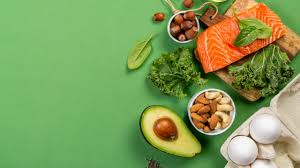Source: usatoday.com
The keto diet. You’ve probably heard of it by now.
It’s the low-carb, high-fat diet that caught on and spread quickly, leading some to label it as a fad, while others praised its effectiveness.
The new year brings in an annual flood of personal health goals, and for those trying to lose weight, the keto diet might have come into consideration. Is it effective? More importantly, is it healthy?
Before making any commitments to keto, it’s important to understand what you’re getting yourself into. In addition to what the health professionals below have to say about keto, it’s important to consult your doctor before embarking on any high-fat diets.
First of all, what is keto?
Though there are slightly different versions of the ketogenic diet, it’s primarily based on a low intake of carbohydrates coupled with a high intake of fat and protein.
Generally, this means people on the diet get 70% to 80% of their daily calories from fat, about 20% from protein and about 5% from carbs.
The decreased intake of carbs forces the body into the state of ketosis, in which fat becomes the main provider of fuel for the body.
Though similar, keto is not the same as the Paleo and Atkins diets, which also feature low-carb routines.
Experts say keto diet is not the answer
The diet has been associated with effective weight loss, but it doesn’t necessarily get the approval from doctors.
“I wouldn’t recommend the keto diet to anybody,” Jeffrey Mechanick, medical director at Mount Sinai Heart’s Marie-Josée and Henry R. Kravis Center for Clinical Cardiovascular Health, told USA TODAY.
When it comes to dissecting popular diets such as keto, doctors stress the importance of knowing the difference between weight loss and genuine overall health.
Reducing your intake of carbs, as the keto diet does, goes hand-in-hand with reducing intake of whole grains, fruits and some vegetables, which raises red flags for health professionals.
“That’s where I get a little concerned about the keto diet,” Vasanti Malik, adjunct assistant professor of Nutrition at the Harvard T.H. Chan School of Public Health, told USA TODAY.
“You want to be mindful, because these foods – whole grains, fruits and vegetables – carry a number of beneficial nutrients – vitamins, polyphenols, fiber – that have been shown time and time again to be beneficial for cardiometabolic health.”
Fitness shaming:It’s keeping people from working out
As the keto diet essentially nixes the body’s intake of carbs, the body searches for an alternative source of fuel. Before long, the body breaks down fat, muscle and tissues to sustain itself, Mechanick said.
“In theory, the keto diet basically mimics starvation,” Mechanick said. “If you don’t eat carbohydrates but you eat an excessive amount of fat and protein, you’re still going to waste tissue. Tissue is still going to burn off.”
Yes, you might experience weight loss on the keto diet, but that might not actually be good for you, considering what you give up.
“I don’t feel particularly comfortable telling people to reduce intake of things that we know offer benefits for health,” Malik said.
If not keto diet, then what?
Diet-driven people might find this part hard to digest.
Doctors are moving away from what we traditionally think of as a “diet,” one with specific restrictions or calorie goals. Instead, they promote a healthier overall lifestyle.
“The vernacular is changing,” Mechanick said. “We try not to even use the word ‘diet.’ We try to use the phrase ‘eating pattern.'”
There’s a “rebound” issue with many fad diets such as keto, Malik said. You go on the diet, lose weight, but what happens after that? Most people struggle to stick with it.
“Without a realistic lifestyle change, the individual is going to regain the weight,” she said.
The answer might not be a traditional “diet” at all, but there are changes you can make to shed weight while leading a healthy and sustainable lifestyle.
The importance comes in the quality of the foods you eat, not necessarily the number of calories you consume, Malik said. She favors of eating patterns that don’t abide by a restrictive calorie count, because they generally help people stick with the pattern longer.
